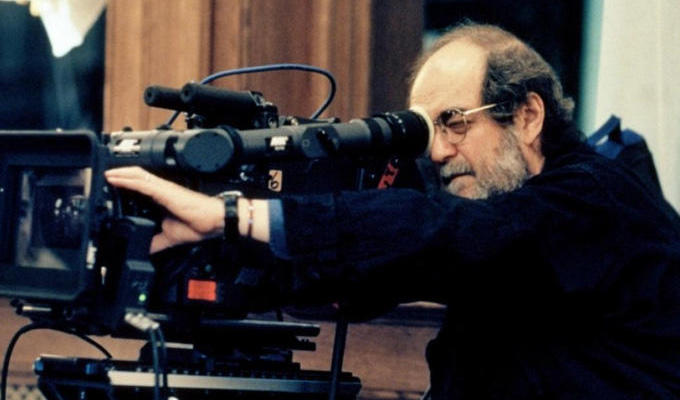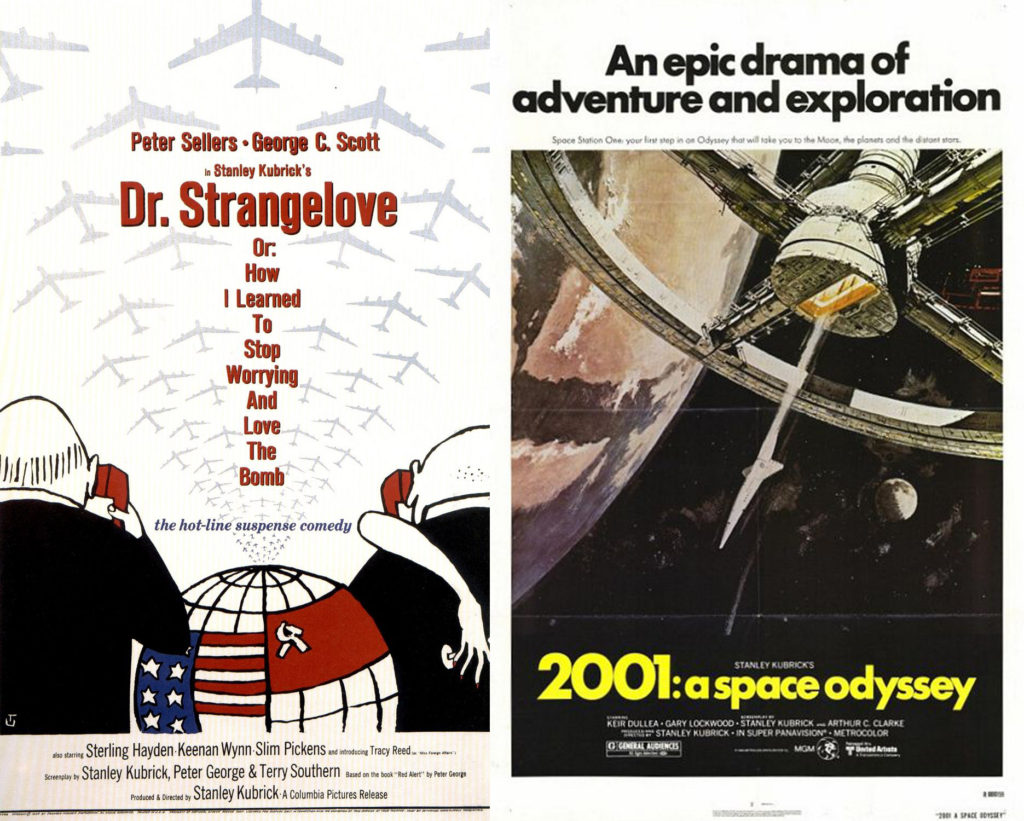
Want to become an instant expert in our filmmaker of the month without committing yourself to an entire filmography? Then you need the Hell Is For Hyphenates Cheat Sheet: we program you a double that will not only make for a great evening's viewing, but bring you suitably up-to-speed before our next episode lands…

DR STRANGELOVE (1964) and 2001: A SPACE ODYSSEY (1968)
Which two films sum up Stanley Kubrick's career? Can two films possibly do such a thing? They cannot, which speaks to the eclectic genius that Kubrick embodied. But with these two choices, we're confident you'll get a good idea of the different shades of Stanley: his humour and his control, his insight and his imagination. Dr Strangelove or: How I Learned To Stop Worrying and Love the Bomb is the ultimate cold war satire, an achingly funny film about the USA and Russia on the brink of nuclear war. Peter Sellers stars as US President Merkin Muffley, Group Captain Lionel Mandrake, and the titular Dr Strangelove, in this profoundly quotable and keenly rewatchable comedy. Once you've watched that, you'll need to go and find a rep cinema. An actual rep cinema that's playing 2001: A Space Odyssey in 70mm, or maybe 35mm, or in a stretch 4K digital. If there was ever a film that should only ever under any circumstance be seen big, it's this one. (Okay, maybe Lawrence of Arabia.) But - grudgingly - perhaps in the era of high-definition television and Blu-ray players and surround sound, we can just about countenance the idea of you watching arguably the most profound cinematic experiences of all time in the comfort of your own home. But only if you turn the lights off and put your phone in the other room, because you're in church.
Substitutions: If you can't get or have already seen Dr Strangelove, seek out 1962's Lolita. It's not exactly a clean substitute, but it's an equally great insight into human psychology (albeit from an entirely different angle), and hey, Peter Sellers. If you can't get or have already seen 2001: A Space Odyssey, seek out 1980's The Shining. Look, there's obviously no corroboration here. What, are we going to point you to Kubrick's other science fiction film that forever redefined cinema? But, like every possible combination of Kubrick films, you can't really fault this double.
The Hidden Gem: Kubrick's earlier films aren't as widely discussed as his later work, which means his debut feature Fear and Desire (1953) rarely gets a look-in. And that's a shame, because his film about four soldiers trapped behind enemy lines is an intense and complex work. It's rawer than his more controlled movies, but you can see the seeds of his style being sown in this tight 62 minute introduction.
The next episode of Hell Is For Hyphenates, featuring Rhys Muldoon talking Stanley Kubrick, will be released on 31 October 2016.
